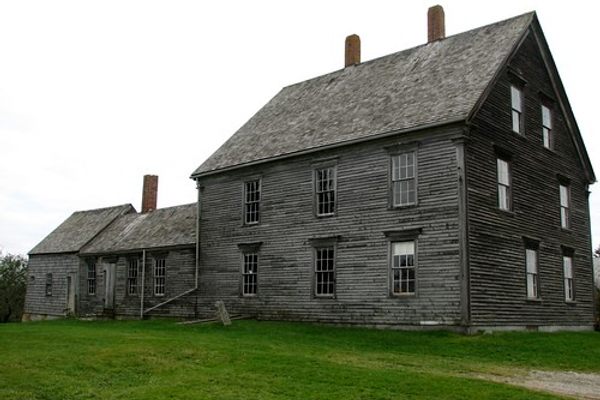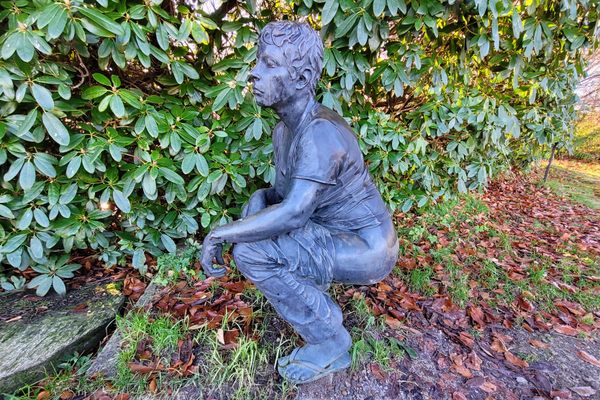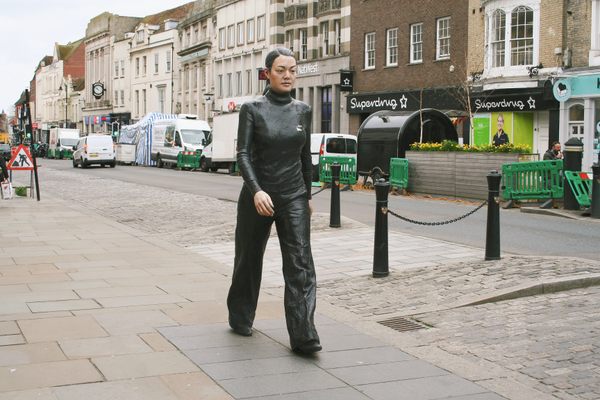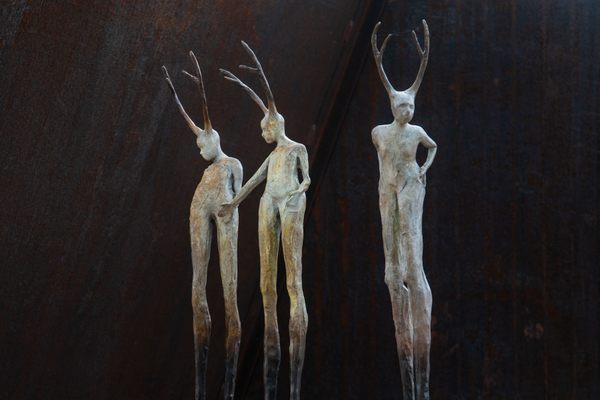AO Edited
Langlais Sculpture Preserve
A nature and outdoor art preserve features the large-scale, abstract works of a renowned Maine folk artist.
Between the likes of Andrew Wyeth, Homer Winslow, and John Imber, it’s plain to see how the natural beauty of the Pine Tree State seeps into the work of many Maine artists. While painter Bernard Langlais lived in Hawaii, New York City, and Norway, a return to Maine later in life would have much the same effect. Inspired by the lush forests of Maine’s Cushing Peninsula, the longtime painter pivoted in the final years of his life to erecting a whimsical, humorous, and sprawling cast of wooden figures across a 90-acre estate. These pieces now line the trail of today’s Langlais Sculpture Preserve, a nature and outdoor art trail paying homage to both Maine’s dynamic landscape and Langlais’s final works.
Despite being born to a carpenter in Old Town, Maine—a region rich in both logging and woodworking—Langlais’s early work lived exclusively at the end of a brush. He attended art schools from Washington, D.C., to New York City to Paris throughout the 1940s and 50s, honing his skills in both expressionist and abstract work, before winning a Fulbright scholarship to study in Oslo. It was not until returning to New England in 1956 that he found the medium on which he’d build his legacy.
Summering in Maine with his wife, Langlais fell in love with the refuse wood he found in the forests around his home. “Painting is 90 percent intellectual and 10 percent physical,” he’d later tell the Boston Globe. “Using wood is closer to even. This satisfies me, this contract.” He settled with his wife on Maine’s Cushing Peninsula in 1956 and began conjuring ever-larger three-dimensional wood figures in the fields, ponds, and forests of their sprawling property. From piles of castaway lumber, Langlais distilled cats, hippos, and quarterbacks; a family of bears and an oversized horse. There is also former President Richard Nixon waving a V-for-victory sign with his hands half-submerged in a marshy swamp and a rendition of Christina of Christina’s World fame, by neighbor Andrew Wyeth.
The couple maintained a more-or-less open-door policy with their estate, so adoring fans could meander throughout the property, alternately viewing his folksy sculptures in situ and watching him at work on a current piece. His rustic, woodsy work earned him unforeseen fame: He was ultimately featured in Art in America’s 1962 “New Talent U.S.A.” survey beside Al Held, Claes Oldenburg, and Andy Warhol.
Between 1966 and 1977, Langlais erected 65 monumental wood sculptures across his estate before succumbing to heart failure at the age of 56. His widow worked for decades to protect the work from the elements while managing the flow of devoted visitors. She ultimately bequeathed the estate to Colby College, which was acquired by the Kohler Foundation in 2013. “While much of his work was distributed to nonprofits throughout the country, twelve iconic sculptures remain in their original locations, making the Langlais Sculpture Preserve the single largest-known collection of his work. A half-mile gravel trail (wheelchair accessible) allows visitors to see Langlais’s final works exactly as he intended—strewn about the cattails, pine trees, and rolling hills of Maine.
















Follow us on Twitter to get the latest on the world's hidden wonders.
Like us on Facebook to get the latest on the world's hidden wonders.
Follow us on Twitter Like us on Facebook